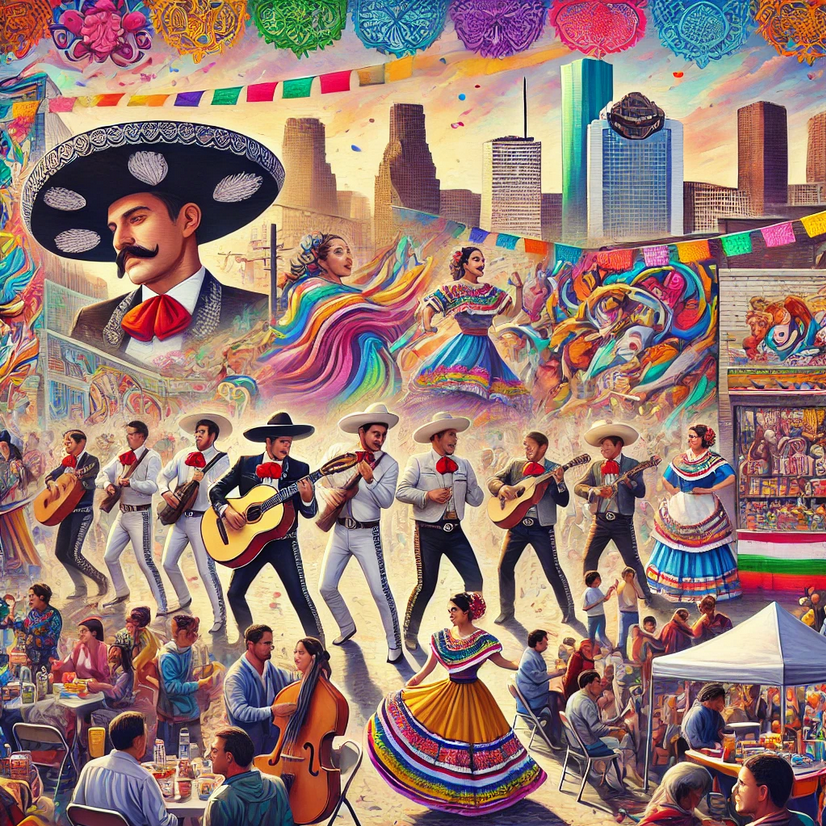
The Origins of Houston’s Latinx Community
The Latinx community has deep roots in Houston, with significant migration beginning in the early 20th century. Initially, many Mexican immigrants arrived to work in agriculture, railroads, and construction, drawn by Houston’s growing economy. Over time, the community expanded to include people from Central and South America, bringing a diversity of cultures, languages, and traditions.
Today, Houston is home to one of the largest Latinx populations in the United States. Neighborhoods such as the East End (El Segundo Barrio) have become cultural hubs, preserving traditions while evolving with the city’s growth. The presence of this vibrant community has shaped Houston’s identity, influencing everything from cuisine to politics.
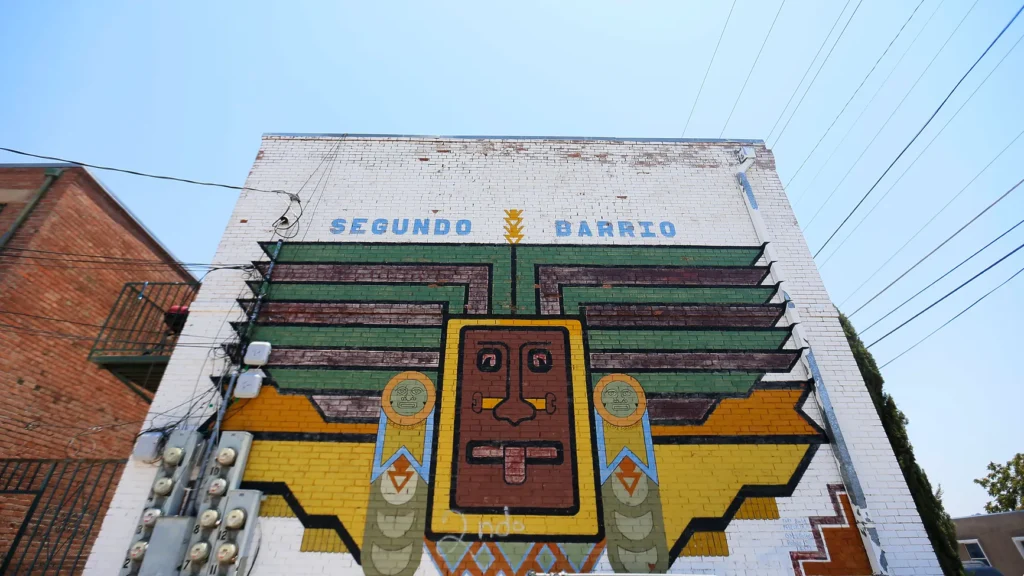
Preserving and Celebrating Traditions
Houston’s Latinx community celebrates a variety of cultural traditions that honor their heritage. Festivals like Cinco de Mayo and Día de los Muertos are widely observed, bringing families and communities together to celebrate Mexican culture. These events are marked by colorful parades, traditional dances like folklórico, and public altars (ofrendas) honoring ancestors.
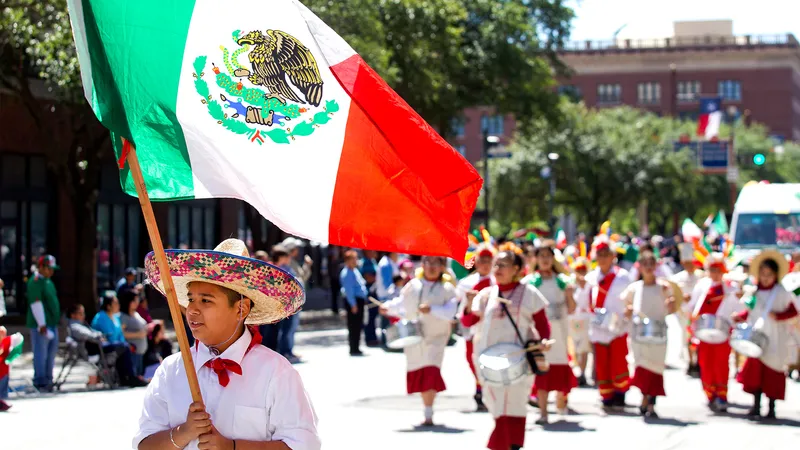
In addition to annual celebrations, Houston’s Latinx residents maintain traditions through music and dance. Mariachi bands are a common sight at weddings, birthdays, and community events, while salsa, cumbia, and tejano music reflect the diverse cultural influences within the community. Traditional foods such as tamales, enchiladas, and pupusas are staples not just at family gatherings but also in local restaurants and food festivals, further enriching Houston’s culinary landscape.
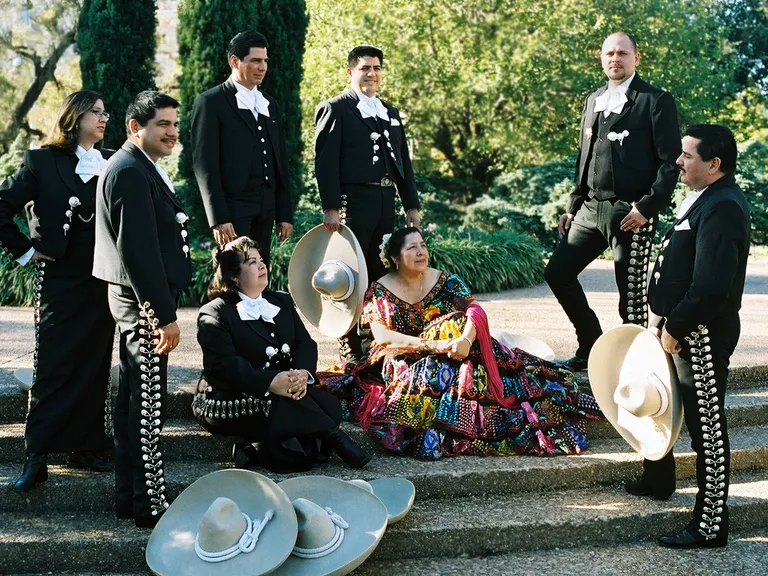
The Latinx Contribution to Houston’s Cultural Landscape
The Latinx community has left a lasting mark on Houston’s cultural institutions. The Houston Latin American Philharmonic Orchestra and Talento Bilingüe de Houston (TBH) promote artistic expression while supporting local Latinx talent. TBH, in particular, offers bilingual theater productions and workshops, creating a space for young artists to engage with their heritage.
Street art has also become a powerful form of cultural expression, with vibrant murals in areas like East End reflecting themes of social justice, identity, and pride. Local artists use public art to tell the stories of their communities, blending tradition with contemporary styles. These murals have become important landmarks, showcasing the creativity and resilience of Houston’s Latinx residents.
Political and Social Impact
Beyond cultural contributions, the Latinx community in Houston plays an active role in shaping the city’s political landscape. Latinx leaders have emerged in city government, education, and activism, advocating for issues such as immigration reform, workers’ rights, and access to healthcare. Houston has also seen the rise of community organizations like Mi Familia Vota, which promote civic engagement by encouraging Latinx residents to vote and participate in local elections.
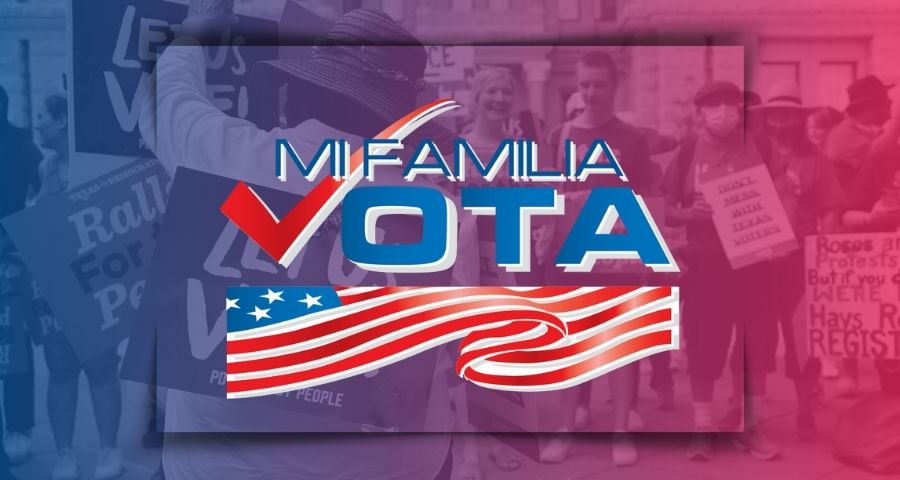
In recent years, Houston’s political activism has focused heavily on immigrant rights and education equity. Latinx activists work alongside other communities to address social issues, ensuring that all residents have equal opportunities. Their advocacy has contributed to making Houston one of the most inclusive cities in the nation, reflecting the values of justice and unity that define the Latinx experience.
Education and the Future of the Latinx Community
Houston’s Latinx community values education as a pathway to success. Institutions such as the University of Houston-Downtown and Houston Community College have developed programs to support Latinx students, offering scholarships, mentorship, and bilingual courses. These initiatives help bridge educational gaps, empowering young people to become future leaders in their fields.
Looking forward, the Latinx community in Houston will continue to thrive, building on its achievements while addressing new challenges. With a strong foundation in cultural preservation, political activism, and educational progress, the community remains an essential part of Houston’s future. As the population grows, Latinx voices will play a crucial role in shaping the city’s identity and ensuring that Houston remains a diverse and inclusive place for all residents.